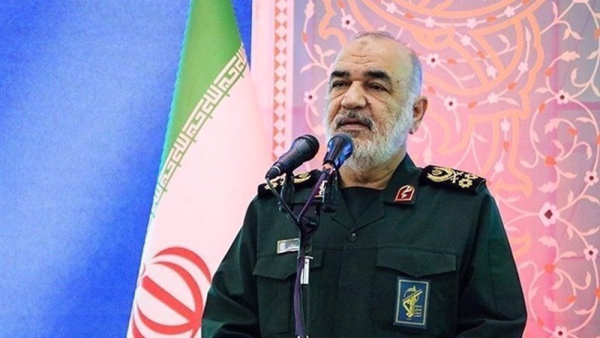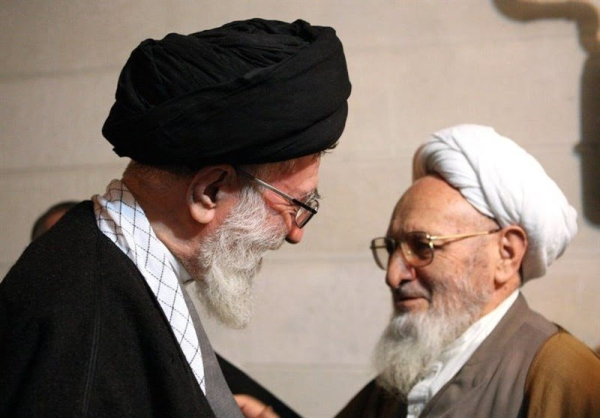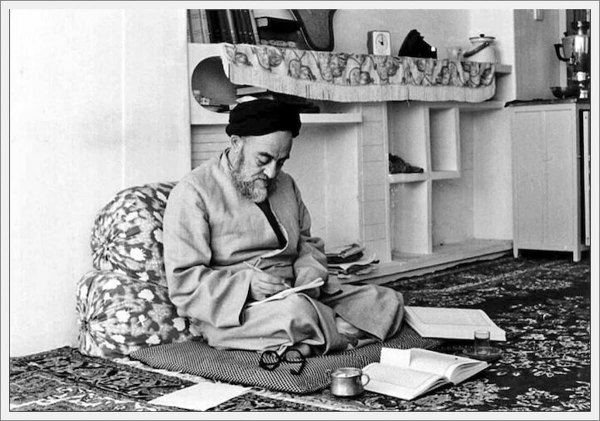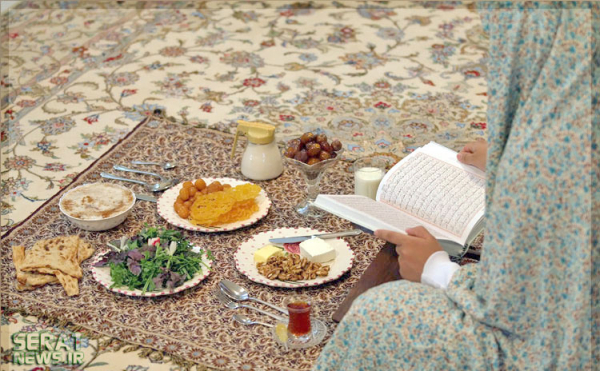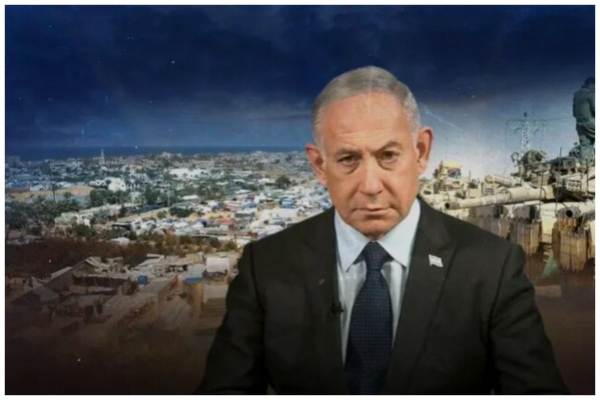zarezadeh
Iran’s enemies have yet to receive ‘serious’ blows: IRGC chief
The chief commander of the Islamic Revolution Guards Corps (IRGC) has lauded the defense and military capabilities of the country, underlining that Iran’s enemies have yet to receive “serious” blows notwithstanding a number of retaliatory strikes and operations over the past year.
Major General Hossein Salami made the remarks on Wednesday as he addressed IRGC units and Basij volunteer forces partaking in the joint drills, codenamed Payambar-e-A’azam (The Great Prophet) 19, in Markazi Province.
Salami said Iran's real power can shake the world, adding that the enemies should beware the country’s blows as in Operation True Promise 1 and 2, which were carried out against the Israeli-occupied territories last year.
“Iran is a single and powerful soul and can shake the world. Iran is great and the enemies have not yet received serious blows from Iran, and everything they have seen so far in the True Promise operations has been only a warning and a prototype,” the IRGC chief said.
“If the enemies do not learn a lesson from the [Islamic Republic’s] history of 46 years and continue their wickedness, they should expect the humiliation and ignominy that they have ... experienced in the past 46 years; [as] the Islamic Republic of Iran is moving forward.”
Underlining that Iran has grown stronger over the years and is independent and powerful, Salami said the Islamic Republic adheres to a school of thought that cannot be taken away by the enemies and such concepts as struggle, independence and, freedom are among its all-time ideals.
“The United States and Israel hatched plots to politically isolate the Iranian people and attempted to shake the hearts of the nations, especially Iran, with strict psychological operations, but they failed in every situation they created,” the IRGC chief said.
Salami also emphasized that Washington and Tel Aviv failed to defeat the Gaza Strip and the Palestinian resistance in the besieged territory.
Iran launched a barrage of missiles toward the Zionist entity’s military and intelligence and spying bases in retaliatory attacks in July and October last year.
The operations came in support of Palestinians in Gaza and in response to the regime’s assassinations of Hamas’s chief Ismail Haniyeh, Hezbollah’s leader Sayyed Hassan Nasrallah, and IRGC commander Abbas Nilforoushan.
Press TV’s website
What are the health benefits of fasting?
Fasting can have many health benefits and even extend your lifespan. However, if you have a medical condition, you should consult your doctor about not fasting and only fast if your doctor allows it. Here are some of the health benefits of fasting.
Benefits of Fasting: Prevents Diabetes by Reducing Insulin Resistance
Several studies have shown that fasting can improve blood sugar control. This is especially beneficial for people who are at high risk of developing diabetes. A study in 10 people with type 2 diabetes found that short-term intermittent fasting significantly reduced blood sugar levels. On the other hand, one study found that intermittent fasting and fasting every other day were as effective as calorie restriction in reducing insulin resistance.
Reducing insulin resistance can increase the body's sensitivity to insulin, which allows the body to move glucose from the bloodstream into the cells. In addition to its potential blood sugar-lowering effects, fasting can also help stabilize blood sugar levels and prevent spikes. Keep in mind that these effects can be different for men and women. For example, one study found that fasting helped improve blood sugar control in women but not in men.
Improves overall health by preventing inflammation in the body
Although acute inflammation is a natural immune process that is activated to fight infections, chronic inflammation can pose many risks to your health. Research suggests that inflammation can play a role in people with chronic diseases such as heart disease, cancer, and rheumatoid arthritis. Some studies suggest that one of the benefits of fasting is that it can help reduce inflammation levels in the body and promote health.
A study in 50 healthy adults found that intermittent fasting for one month significantly reduced levels of inflammatory markers. Additionally, an animal study showed that following a low-calorie diet to mimic the effects of fasting was effective in reducing inflammation levels and was also very beneficial in treating MS, a chronic inflamm
Ramadan is the month of God's hospitality
In Ramadan, believers are invited to God's hospitality, and this hospitality has the following characteristics:
1- The host is God and He has personally invited the guests.
2- The means of hospitality are the Night of Power, the revelation of the Quran, the descent of angels, the acceptance of prayers, the tenderness of the soul, and distance from hell.
3- The time of hospitality is the month of Ramadan, which according to narrations, the beginning of which is mercy, the middle of which is forgiveness, and the end of which is reward.
4- The manner of hospitality is such that the guests' needs for a year are met in it, and the earth is adorned with the descent of angels on the Night of Power.
5- The food of this month is the food of the soul, which is necessary for spiritual growth, not food for the body. The grace of the food of this hospitality is the verses of the Quran, the recitation of one verse of which in the month of Ramadan is like reciting the entire Quran in other months.
This feast has no resemblance to worldly feasts. God, the All-Knowing, the Rich, the Creator, the Eternal, the Mighty, and the Glorious, becomes the host of ignorant, poor, mortal, created, and humiliated humans, and says: I will answer your prayers and I will grant the reward of glorification for every soul that dies in the month of Ramadan.
Muhammad ibn Ali al-Baqir (peace be upon him)
Muhammad ibn Ali al-Baqir (peace be upon him)
Muhammad was born in Medina around 676. In 680, as a young child, he witnessed the Battle of Karbala, where his grandfather Husayn ibn Ali (peace be upon him) and most of his relatives were massacred by the forces of the Umayyad Caliph Yazid ibn Muawiyah (r. 680–683). After his father's martyrdom around 712, Muhammad (peace be upon him) was recognized by most of his father's followers as the next Imam.
Muhammad al-Baqir lived a pious and scholarly life in Medina, attracting a growing number of followers, students, and visitors. During his nearly twenty-year imamate, he is considered to have laid the doctrinal and religious foundations of Twelver Shiism. He can also be considered the father of Ismaili and Zaydi jurisprudence. He ultimately contributed significantly to the Twelver interpretation of the Quran. Most of Imam Baqir's disciples were based in Kufa, in present-day Iraq, many of whom later became prominent Shia jurists and traditionists. Some of these, such as Zurarah ibn Ayan, may have occasionally disagreed with Al-Baqir, who would not have approved such independent views if they had gone beyond the general theological and legal framework presented by the (Shiite) Imams. In Sunni Islam, Imam Baqir is regarded as an authority on Sharia and the Prophetic tradition.
According to most Shia accounts, Imam Muhammad Baqir died around 732 and was poisoned by the Umayyads. He is buried in the Baqi' cemetery in Medina, but the shrine over his grave has been destroyed twice by Wahhabis. Imam Baqir was succeeded by his eldest son, Ja'far al-Sadiq, who further developed Shia theology and law.
Moral Advice of Allama Hassanzadeh Amoli
Moral Advice of Allama Hassanzadeh Amoli
In his book "Liqa' Allah", which he wrote about 53 years ago, Allama Hassanzadeh Amoli gives fourteen pieces of advice to those interested in monotheistic conduct.
In his book "Liqa' Allah", Allama Hassanzadeh Amoli gives fourteen pieces of advice to those interested in monotheistic conduct. He wrote this treatise in 1389 AH (53 years ago). On the eve of the Arbaeen, the passing of that master of arts, we review his humanizing and instructive advice below:
1. Continuous reading and constant familiarity with the Quran: "The closer you get to the Quran, the closer you get to the perfect human being. Look at the pleasure and benefits you get from the Quran! Its truths are the degrees of essence and the steps of ascension."
2. Constant ablution: "O friend! Know that ablution is light and persistence in purity will elevate you to the world of holiness. This commandment of great benefit is proven by its people; you should be careful about it."
3. Eating too much: "O friend! Too much food kills the heart and will cause rebellion and unbridledness. Hunger is one of the characteristics of a believer."
4. The Messenger of God (PBUH) said: "Do not speak excessively except in the remembrance of God, for much speech that does not include the remembrance of God hardens the heart."
5. Self-examination: Imam Kazim (AS): "He who does not examine himself every day is not one of us. If he has done a good deed, he should ask God to increase it, and if he has done a wrong deed, he should seek forgiveness and repent."
6. Meditation: "Be mindful of yourself! Be mindful of yourself! Be mindful of yourself! Mindfulness means that the servant knows that God is a rival to him and close to him, and that He knows his actions, sees his movements, hears his words, and is aware of his secrets, and that he cannot hide himself from God and escape from His authority.
7. Observing politeness in the presence of God: "Imam Jawad (a.s.) explained the truth of politeness and said: Recite the Quran as it was revealed, narrate our words as we have spoken them, and call upon God as you are in need and in need of Him."
8. Izlat: "The main meaning of Izlat is the separation of the senses, to solitude, from the possession of the senses; because every calamity, temptation, and calamity that the soul is afflicted with, the senses are involved in it. With solitude and separation of the senses, the soul's support from the world and the devil, desires and lusts, is cut off.
9. Tahajjud: God Almighty's command to His Prophet to reach the praised station:
And from the night, you pray therein as a voluntary prayer for you, perhaps your Lord will raise you to a praised station (Al-Isra, 79). And the reason for the pious enjoying the blessings of the hereafter is introduced by their staying awake at night (Dhariyat, 15-19)
10. Thinking: Those who remember Allah Standing, sitting, and on their sides, and they reflect on the creation of the heavens and the earth. Our Lord, You have not created this in vain. Glory be to You. We have escaped the punishment of the Fire. (Aal Imran, 191)
11. Constant remembrance: Both verbal and heartfelt remembrance
12. Academic and practical asceticism: "Asceticism, in the two paths of knowledge and action, and only according to the path of the Muhammadan Sharia. From other than this path, nothing but distance and distance will be achieved."
13. Great determination: "Have great determination! To the extent that you do not worship anyone or anything except Allah Almighty; Do not worship even out of desire for heaven and fear of hell, otherwise you have worshipped your own desires."
14. Repentance from good and bad deeds! "My teacher, Ayatollah Elahi Tabataba'i, said: "True repentance is that you repent from good and evil." I thought for a while and then said: But repentance from evil does not need to be explained, but what is repentance from good? He said: What we consider good, such as prayer, fasting, reciting the Quran, studying, and researching our studies and the like, if we truly reflect on it, we will find that all of them are incomplete and imperfect. Therefore, it is obligatory for a perceptive person to repent from these incomplete deeds and intend to perform them in a perfect manner that is acceptable to God."
Tasnim News Agency
Moral advice of Allameh Tabataba'i
Allama Tabataba'i says: "Remember God so that God will remember you. If God remembered man, he would be freed from ignorance. If he is stuck in a task, God will not let him fail. If he is stuck in a moral problem, God, who has beautiful and best names and is characterized by excellent qualities, will certainly remember man."
What happens to your body when you fast?
Whether you’re fasting or not, your body still needs energy. The body’s main source of energy is a sugar called glucose, which is usually found in carbohydrates, including grains, dairy products, fruits, some vegetables, beans, and even sweets. The liver and muscles store glucose and release it into the bloodstream whenever the body needs it.
However, during fasting, this process changes. After about eight hours of fasting, the liver will use up the last of its glucose stores. At this point, the body enters a state called gluconeogenesis, which marks the transition of the body to a fasting state. Studies have shown that gluconeogenesis increases the number of calories the body burns. If carbohydrates are not consumed, the body begins to produce glucose using fat.
Eventually, these energy sources are used up by the body, and if fasting continues, it can turn into a more serious starvation. At this stage, the metabolism slows down considerably and the body begins to burn muscle tissue for energy. True starvation occurs after several consecutive days or even weeks without eating; therefore, since fasting in Islam is less than 24 hours, it is generally safe and will not cause any problems for you unless you have a specific disease, and it also has some benefits.
The Holy Quran and effects of honey in treating physical illnesses
قال الله تعالي:« و اوحي ربك الي النحل ان اتخذي من الجبال بيوتا و من الشجر و مما يعرشون ثم كلي من كل الثمرات فاسلكي سبل ربك ذللاً يخرج من بطونها شراب مختلف الوانه فيه شفاء للناس».نحل 68
Honey is a sweet food that is often in liquid form and is obtained from honey bees. The Holy Quran mentions various foods, but it is only in the case of honey that it is called "healing".
"And your Lord inspired the bee with an instinct: Eat from the mountains and the fruits of the flowers, and walk in ease in the paths that your Lord has prepared for you; there comes out of your bellies a drink of various colors, in which is healing for people."
Honey and digestive diseases:
The various chemical elements in honey are such that they can have beneficial effects on some diseases of the digestive system. For example:
*It helps digest food because it contains digestive enzymes. These enzymes include: amylase, sucrase, lipase, etc.
* Honey reduces the severity of stomach acid (it regulates the increase in gastric acid secretions). It is useful for stomach ulcers and gastritis. It regulates the reduction of gastric acid secretions, and in fact, it can be said that honey plays an effective role in regulating stomach acids. In this context, an interesting study was conducted by Professor "Khotkin" on a large number of patients with gastric ulcers and intestinal ulcers. In this study, a group of these patients were treated in the usual way at medical centers, and another group was treated only with honey, the result was extremely interesting. 61% of the first group was completely cured and 18% of them still suffered from pain, but 84% of the second group was completely cured and 9.5% of them still complained of pain.
Scientists believe that honey has a dual effect on stomach ulcers: a local effect that causes the wound to heal quickly and regulates stomach acids, and a general effect that improves the patient's general condition and calms his nervous system.
* The positive effect of honey in treating intestinal infections, especially in children, is completely clear and proven. The Holy Prophet (PBUH) is also quoted as having recommended eating honey to treat diarrhea in many cases.
* Honey prevents fermentation due to its formic acid content, which is effective on intestinal microbes.
* Honey prevents constipation, especially constipation that occurs after surgery, because it contains volatile essential oils that increase intestinal activity. Similarly, honey contains astraacetyl glucoside, which is converted into oxymethyl anthraquinone in the intestines and prevents constipation.
* In most liver and gallbladder diseases, if honey is included in the patient's diet, it will be beneficial and effective; because honey is a nutrient for liver tissues and increases the storage of sugars in the liver.
If honey is mixed with pollen and royal jelly (the food of the queen bee), it is effective in most liver diseases due to its mineral salts, vitamins, hormones, acids, etc. and increases the activity of the liver's sugar metabolism. Dr. Koch believes that this power of effect in honey is due to a substance called (Glueatilic Factory) which has a special effect on the liver and the circulatory system and the heart.
Israel-engineered terrorism in Aleppo shows Syria's key role in Axis of Resistance
Following the cessation of Israeli hostilities in Lebanon with a ceasefire on November 27, residents of south Lebanon, along with those from other affected regions, were finally able to return to their homes.
However, certain border villages and towns have been classified as "high-risk" areas due to heightened security concerns, rendering them inaccessible for the time being.
There have even been reports about Israeli occupation forces stationed at the border opening fire at Lebanese people who tried to return to their homes after the ceasefire.
Meanwhile, a ceasefire in Lebanon coincided with the intensification of violent aggression in western Aleppo, where the Syrian Arab Army (SAA) is currently engaged in confrontations against Israel-backed Takfiri terrorists incorrectly described in mainstream media as Syrian “rebels.”
These terrorist groups, operating in Syria under the umbrella of Hayat Tahrir Al Sham, are supported by the Israeli regime and Western powers and represent a broader geopolitical dynamic at play.
The Zionist entity’s recent disgraceful defeat in southern Lebanon after nearly 70 days of unchecked aggression, marked by its inability to penetrate Lebanese territory due to Hezbollah’s adept military maneuvers, prompted a strategic recalibration.
To salvage its already tattered image, the Israeli regime is now pursuing new fronts of war, aiming to disrupt critical supply chains facilitating the transfer of arms to the Lebanese resistance.
This escalation follows a pointed warning from the Zionist entity’s Prime Minister, Benjamin Netanyahu to Syrian President Bashar al-Assad, telling him “You’re playing with fire.”
Netanyahu’s statement, made in the aftermath of the ceasefire in Lebanon and admission of defeat against Hezbollah, directly references Syria’s crucial role in helping the Axis of Resistance.
Syria’s role in the Axis of Resistance
Syria plays a pivotal role within the Axis of Resistance, serving as a key supporter of both Hezbollah and Palestinian resistance factions by facilitating the transfer of weapons and resources.
Beyond its logistical contributions, Syria also hosts critical research facilities in the city of Aleppo, underscoring its strategic importance to the broader resistance network. Furthermore, Syria remains a frontline state in the struggle against Western-backed proxies, which aim to gain control of Aleppo and undermine President Bashar al-Assad’s democratically-elected government in Damascus.
These dynamics highlight Syria’s dual role as both a logistical hub and a steadfast actor in resisting external attempts to destabilize the region.
Syria’s arms depots, consisting of domestically manufactured weapons as well as supplies procured from other countries, have been instrumental in supporting Hezbollah’s operations in Lebanon.
Over the last decade, Syrian research facilities and scientific research centers dedicated to weapons development have been repeatedly targeted by the enemy.
This has included airstrikes on strategic sites and the targeted killings of key personnel involved in coordinating arms transfers. In recent weeks, these attacks have intensified, signaling a deliberate effort to weaken Syria’s military infrastructure and its role in sustaining the resistance.
At the same time, resistance forces are positioned in Aleppo to counter the growing threat of enemy-backed proxies in and from northern Syria. These proxies are attempting to overextend the resistance and cut off essential supply routes, further illustrating the interconnected nature of the regional war.
Why did Syria refrain from entering war?
The argument that Syria did not enter the war against the Zionist regime is rooted in the complex realities of its domestic and regional circumstances.
Syria refrained from direct involvement alongside Hezbollah or Palestinian resistance factions because it is deeply engaged in its own internal battles, fighting terrorist forces within its borders. Despite this, Syria has continued to serve as a critical supplier of weapons to the resistance front.
For instance, when Hezbollah targeted the Israeli regime’s Tel Nof airbase, it used a modified version of the 302-mm Syrian M-302 Khaibar-1 Multiple Launch Rocket System (MLRS) with a declared range of up to 225 km, referred to as the “Fadi-6.”
This adaptation, provided by Syria, included extending the rocket's range and reducing the warhead's weight, resulting in a total weight of 650 kg and a 140 kg warhead.
Additionally, a military video released by Hezbollah on November 3 highlighted its underground facilities and reinforced its commitment to resistance.
“We will not leave the battlefield... We will not lay down our weapons," it stated.
The footage showcased “Fadi-4” rockets, derived from Syria’s Khaibar-1, alongside AKS-74U carbines, further demonstrating Syria’s contributions to the Lebanese resistance’s arsenal.
There have also been repeated discoveries of weapons by the IOF during their infiltration of warehouses and buildings in southern Lebanon. Among these findings were weapons of Russian origin, previously identified as being used by the Syrian Arab Army.
These discoveries further underscore Syria’s deep involvement and unwavering support for Hezbollah, demonstrating the extent of its commitment to the resistance.
Israel’s terror operations in Syria (2022–2024)
Between 2022 and 2024, Israel’s operations in Syria largely focused on dismantling the country’s air defenses, radar systems, and military research facilities.
It systematically targeted critical components of Syria’s military infrastructure, including scientific research centers, defense laboratories, and weapons depots. These sites are essential for Syria’s military development and strategic capabilities.
In early November 2024, for example, Israel launched an attack on a scientific research facility and defense laboratories of the Syrian Arab Army near Al-Safira in the Aleppo countryside.
These facilities are not only critical bridges for the transfer of weapons but also central to Syria’s broader role in supporting the resistance. Syria’s scientific research centers, defense laboratories, and military manufacturing facilities form the backbone of its defense capabilities, enabling the production of weapons ranging from bullets to missiles and artillery.
Israeli regime’s recent actions can be characterized as defeatist, reflecting its acknowledgment of losing the war in Lebanon against the Lebanese resistance before it even began.
Its escalations in Syria are not only attempts to regain some semblance of control but are also aimed at undermining Hezbollah’s resistance capabilities.
However, the SAA remains steadfast in its defense of the Syrian people and its support for the Axis of Resistance. The freedom fighters in Syria are deeply loyal to President Bashar al-Assad and inspired by the martyrdom of iconic leaders such as Sayyed Hassan Nasrallah.
Over the past decade, Syria has significantly bolstered the resistance in Lebanon, including advancements in drone and missile technology for Hezbollah.
In parallel, an intense propaganda campaign against the SAA is in full swing, similar to those launched against the Arab country beginning in 2011.
Such efforts aim to delegitimize Syria’s role in the resistance axis and weaken its influence.
Yet, history demonstrates that when an enemy resorts to these strategies in the aftermath of a defeat, it is often only a matter of time before it faces another failure.
Syria’s resilience and its strategic alliances continue to thwart the Tel Aviv regime’s attempts to destabilize the region, and the enduring battle for a liberated Palestine continues.
Ghadir Khumm is a university student in Canada pursuing a master’s degree. She focuses on postcolonial studies, dedicates her time to international relations, and crafts insightful political analyses on global issues.
By Ghadir Khumm
Press TV’s website
Netanyahu: Israel won't allow Hayat Tahrir al-Sham forces in southern Syria
Israeli prime minister Benjamin Netanyahu has said that his regime will not tolerate the presence of Hayat Tahrir al-Sham (HTS) nor any other forces affiliated with the Arab country's new rulers in southern Syria.
Netanyahu said at a military graduation ceremony on Sunday that Israel will keep its positions there as a “defensive measure” and for as long as is necessary.
"We will not allow forces of the HTS or the new Syrian army to enter the territory south of Damascus. We demand full demilitarization of southern Syria, in the provinces of Quneitra, Daraa and Sweida," Netanyahu was quoted as saying.
The Israeli prime minister also said the regime's troops will remain stationed at a so-called “buffer zone” inside the occupied Syrian Golan Heights, seized following the fall of President Bashar al-Assad,
Former al-Qaeda affiliate HTS took control of Damascus in early December in a stunning offensive, prompting a wary Israel to move forces into a UN-monitored demilitarized zone within Syria.
Militant factions, led by Hayat Tahrir al-Sham, toppled Assad’s government on December 8 last year.
Following the downfall of Assad’s government, the Israeli military has been launching airstrikes against military installations, facilities, and arsenals belonging to Syria’s now-defunct army.
Israeli military aircraft on Tuesday launched a series of strikes against several weapons sites inside Syria in the latest act of aggression.
The Israeli military said that its unmanned aerial vehicles struck weapons which it said belonged to the former Syrian administration in the Sa'sa' district of Rif Dimashq province, located southwest of the capital Damascus and near the occupied Golan Heights.
Israeli media recently reported that the regime’s ministers had met to discuss a classified plot to promote the division of Syria after the fall of Assad's government.
Last month, regional security sources briefed on the plot were quoted as saying that Israel had already planned to divide Syria into three blocks and to establish military and strategic ties with the Kurds in Syria’s northeast and the Druze in the south, leaving Assad in power in Damascus.
Press TV’s website
